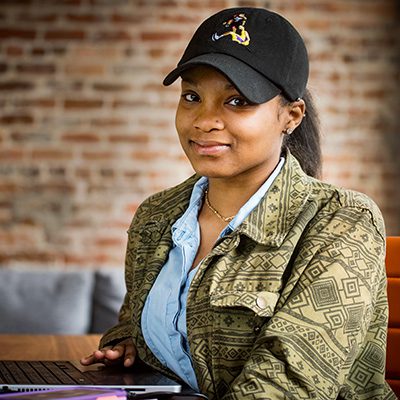This ad for Western Union got me thinking about the role of activist marketing in moving conversations about social issues to the forefront. One such social issue is the recent #MeToo phenomenon — which demonstrates the power of using your voice and sharing your story to push for change.
No doubt you’ve probably been reading and watching a lot of reports about sexual abuse in Hollywood, sports and universities. Finally, we’re seeing more widespread attention and dialogue around this important issue, and it began, in large part, with a few women who gathered the courage to share their stories about the alleged predatory behavior of film producer Harvey Weinstein. Suddenly, there was a resurgence of the #MeToo hashtag, with women all over shedding more light on the issue of sexual assault. (Did you know that #MeToo was originally created more than over ten decades ago by Tarana Burke, a Harlem activist, who fought to aid underprivileged women of color affected by sexual abuse?).
You see, I am currently a senior at Bennett College, set to graduate in May, and the topic of sexual assault on college campuses has been on mind. Attending an all-women’s Methodist Church institution, I find that many people may not believe that sexual assault can take place in a small educational setting with a religious foundation — but you never know.
Recently, Larry Nassar, long-time team physician for US Women’s Gymnastics and Michigan State, was sentenced to 40 to 175 years in prison after more than 150 women and girls said in court that he sexually abused them over the past two decades. If you haven’t watched Aly Raisman’s powerful testimony, it’s a must see.
Events at universities like Michigan State, can make students feel very unsafe and not protected. Many students are afraid to speak up about their circumstances because of their fear of being judged or of not getting the support that they need.
According to the Rape, Abuse, and Incest National Network (RAINN), there are six reasons why students do not report the crime:
- Students believe that it is a personal matter.
- Students fear retaliation.
- Students believe the matter isn’t important enough.
- Students do not want their predator to get in trouble.
- Students believe the police wouldn’t or couldn’t do anything to help.
- Students report it, but not to law enforcement.
So, what are colleges and universities doing to prevent these things from happening? We’ve seen all too often how schools sweep the issue under the rug to protect the reputation of the institution. Take Michigan State for example: many complaints were made to their then president, Lou Anna Smith, about Larry Nassar’s abuse and no one took the initiative to do or say anything.
It is important to normalize speaking up. Some businesses are standing up against sexism and leveraging social media and advertising to facilitate dialogue on the issue. Recently, I came across an article in The Washington Post about the company Microsoft. The company announced that their employees would be permitted to sue Microsoft if they experience sexual harassment. Many of the employees are being hopeful that Microsoft’s decision will sway other large corporations to follow their lead. Gretchen Carlson, who became a face for the movement against workplace misconduct, tweeted about the problem with forcing arbitration rather than allowing employees to sue. “EVERY organization should end forced arbitration, because keeping victims silent is how sexual predators can get away with it for years (or decades),” she wrote.
Amidst the outcry, Michigan State has finally made some critical changes as well by appointing a new interim president and furnishing more resources for Title IX complaints.
As an intern for a marketing and communications group, I can see how important it is for businesses to leverage their voices — and their marketing dollars — to speak out against sexual assault in social media, advertising and their web communications, for example. While businesses and agencies need to carefully walk the line of activist marketing, if just a few high-profile businesses would lead the way with positive messages, I think we could see a bandwagon effect. Check out a few examples below.
- Here is a set of 30-second public service announcements made by Sigal Avin and David Schwimmer, capturing different sexual harassment experiences that some women encounter at their workplace.
- Ad agency mcgarrybowen teamed up with Western Union to create a campaign called “The race is on” (above) to emphasize that young girls can grow up and do whatever they want to do. The brand has launched the WU Scholars Program, which is a global scholarship for students in science, technology, engineering, mathematics (STEM), business and entrepreneurship.
- Talk about female empowerment — McCann agency in New York created the “Fearless Girl” statue for a campaign for State Street Global advisors. The bronze statue of a girl standing defiantly is located across from the iconic Wall Street charging bull
Again, it is encouraging to see businesses use their voice to take a stand against sexual misconduct via social media. For our workplaces to be equitable, it all comes down to respect and surrounding yourself with people who celebrate who you are and the impact you can make. I feel fortunate to be in that kind of environment at Tigermoth. I’ve been an intern for four weeks now and I can say that the respect and professionalism that each person demonstrates not only for each other but for me is very welcoming. They are one big family that learns from each other and that’s a type of business that I want to be a part of forever.

